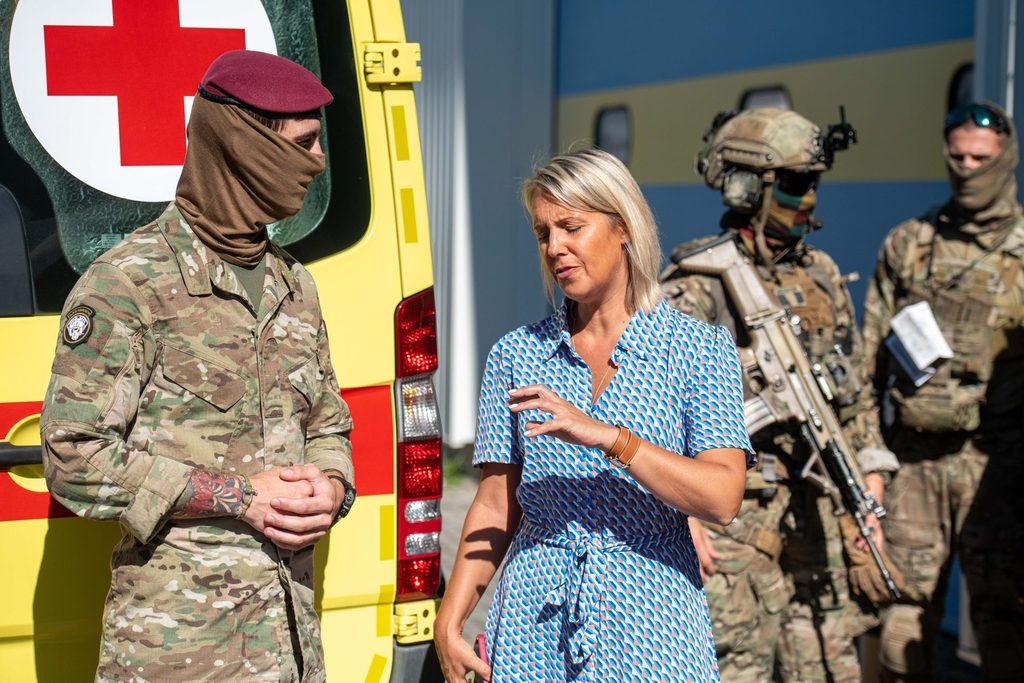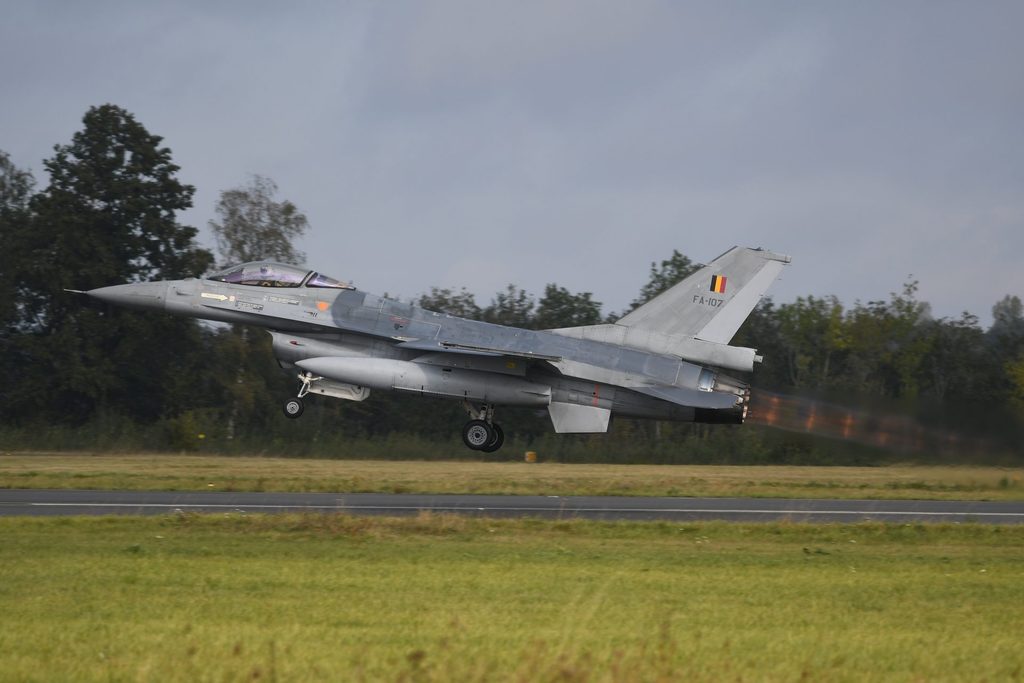Tensions are on the rise within the Belgian Government, as the liberal MR party seeks clarifications from the Defence Minister, Ludivine Dedonder (PS), on the rationale behind Belgium's refusal to supply fighter jets to Ukraine.
The issue has gained prominence following the request from the MR for an objective assessment of Belgium's capacity to provide support to Ukraine with its fleet of 53 F-16 fighter aircraft.
Deputy Prime Minister David Clarinval reiterated his party's call for Belgium to enhance its contribution to the NATO war effort, currently at €280 million, standing among the alliance's lowest. Clarinval suggested that Belgium could potentially deploy between two and four Belgian F-16s to assist Ukrainian forces.
Behind closed doors, sources have disclosed mounting international pressure on Belgium to follow the lead of European counterparts, such as the Netherlands and Denmark, who have committed to sending fighter jets to Ukraine. Belgium, part of the same "F-16 coalition", has thus far limited its involvement to the training of Ukrainian pilots and the dispatch of two aircraft to Denmark for this purpose.
The motivations behind the MR's insistence on a more significant contribution from Belgium have raised questions within the government, particularly in the camp of Minister of Defense Ludivine Dedonder from the Socialist Party (PS).
A comprehensive analysis?
Belgium's decision to withhold fighter jets from Ukraine is grounded in a government-wide position and a comprehensive analysis already provided by the Defence Ministry, according to sources close to the Minister.

Defence minister Ludivine Dedonder speaks to military personnel. Credit: Belga / Jonas Roosens
These well-known arguments include Belgium's necessity to maintain its aircraft for ongoing international missions, notably its role in safeguarding the airspace of the Baltic States, which is regularly tested by Russia.
Additionally, Belgium must prioritize its own security as it hosts the headquarters of NATO and European institutions. The aging fleet of Belgian F-16s, coupled with delays in the delivery of F-35s by Lockheed Martin, further complicates the matter. The first F-35 is not anticipated to arrive on Belgian soil until 2025.
"As opposed to the Netherlands and Denmark, we have yet to receive an F-35," the Defence Minister told l'Echo. In essence, it appears that the MR's request is likely to prompt the Defence Ministry to reiterate the same arguments presented during previous discussions. However, some sources suggest that there may be internal divisions within the military on this issue.
Related News
- 'Operationally not possible to supply F-16s': Belgian Defence Minister sticks to her guns
- Fighter jets for Ukraine: Belgium reconsiders sending old F-16s, De Croo confirms
- Belgium joins F-16 coalition to train Ukrainian pilots
MR, on the other hand, maintains that the government has not formally decided to reject the idea of supplying F-16s to Ukraine. "Our support for the Minister's proposal regarding maintenance and pilot training should not be construed as a refusal to send aircraft," a party spokesperson told l'Echo.
The unfolding debate within the Federal Government raises questions about Belgium's stance on the Ukrainian conflict and its role within NATO. As international pressure mounts, all eyes are on the Belgian government to provide clarity on its position and the extent of its support for Ukraine in these challenging times.

